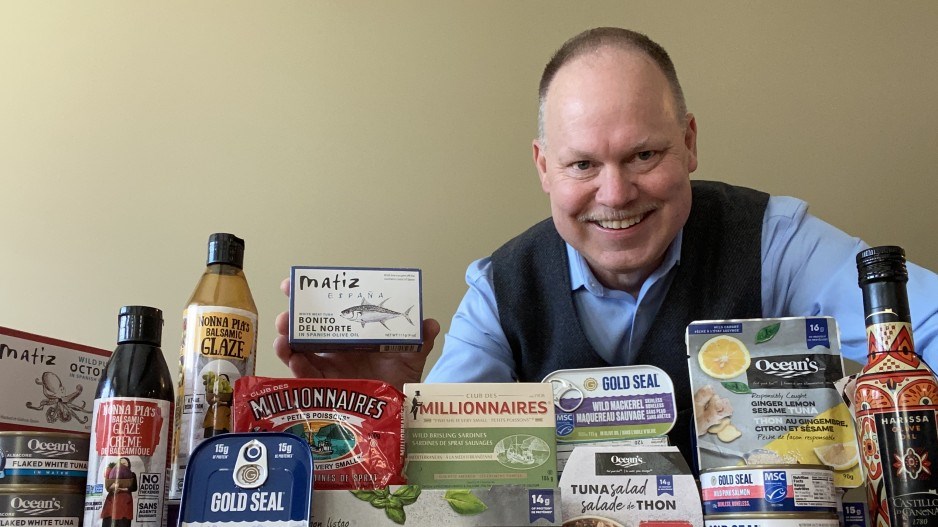The largest Canadian-owned seller of canned seafood has completed two acquisitions that prepare it to expand its wholesale business into at least part of the U.S. market.
Ocean Brands Group president Ian Ricketts told BIV that his company is looking to make additional acquisitions and is likely to do so at a rate of about one per year.
Ocean Brands’ recent transactions highlight how important distribution networks are for manufacturing companies, particularly those that are seeking to find new corporate owners.
The subsidiary of B.C.’s largest private company, the Jim Pattison Group (JPG), has steadily been growing since the JPG bought Ocean Fisheries in 2011, and launched a new division.
JPG in 2013 created Authentica World Cuisine, which sells Puttanesca and other gourmet pasta sauces, and added that company to the Ocean Brands division.
Next came its 2014 acquisition of Gold Seal – a brand known mostly for canned salmon.
Ocean Brands bought a small stake in Whistler’s Nonna Pia, known for balsamic vinegars, in 2017, and added that to the division.
The next year, Ocean Brands bought the Millionaires brand, known for mackerel, sardines and anchovies.
All of these brands enjoy countrywide distribution in all major grocery store chains.
But unlike the other entities within Ocean Brands, Nonna Pia has a strong network of sales into the U.S., Ricketts said.
That network was part of the reason why he wanted to acquire the remainder of the company in October.
At the end of December, Ocean Brands made its most recent acquisition – Washington state-based Culinary Collective.
It sells a wide range of food products such as seafood, olives, nuts and spices.
More importantly, for Ocean Brands, Culinary Collective has an extensive distribution network throughout the U.S., and that is likely to come in handy as the parent company extends its wholesale sales to retailers south of the border, Ricketts said.
“The U.S. is a completely different market than Canada, and, as a matter of fact, it is many individual markets, based on regions of the U.S.,” Ricketts said.
“A lot of Canadian companies go to the U.S. and fail. We've chosen to purchase a company that understands the market and take that approach to entering into that market.”
He is now assessing which Ocean Brands products will be first to be sold south of the border via Nonna Pia and Culinary Collective’s distribution networks.
Culinary Collective’s sales tend to be through natural food stores, specialty food businesses and chains such as Whole Foods, he said.
More small-scale transactions, similar to the ones that Ocean Brands has carried out, could be in the cards, DIG360 owner and retail analyst David Gray told BIV.
“With the incredibly daunting environment for so many independent stores and restaurants, there will be many smaller-scale buyouts that don’t tend to make the news,” Gray said. “Some might be genuine attempts to keep a valued business in the community; others might simply be opportunistic acquisitions of assets.”
He said retailers historically often made acquisitions a way to acquire desired locations, or leased space, but that is less true today – particularly as the share of e-commerce sales rises and leased space becomes less valuable.
“Another reason [for acquisitions] has been to pick up strategic supply chains,” Gray said.
Private equity firms, such as Vancouver-based Stern Partners, are on the lookout for in-distress targets with sound fundamentals, he added.
Those acquisition targets may need a cash injection to carry them through 2021 and 2022, said Gray.




